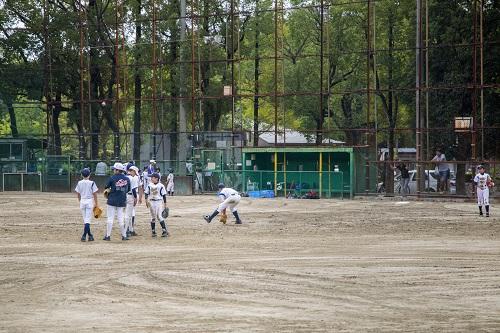

Remember the prediction that local tourism would be the first sector of the sports tourism industry to rebound? It appears to be happening. Even more, it’s backed up by data from the meetings sector.
In the waning days of October, Jason Clement and Justin Roach of Sports Facilities Companies, predicted the rebound of sports would start at the local level.
In the fall, Clement noted in this blog, “We are already re-booking events, creating new events to aid in various sports recovery, and the marketplace is asking us when they can return. The good news is kids are not, so far, as severely impacted by the virus. We can already see a massive rebound in the fall. These changes will lead to a relocation of events, cancelled high school activities, new showcases for athlete exposure, and we know that tournament driven travel will be a major player in the tourism rebound. The youth and amateur sports industry will be a leading force in the economic recovery around the country.”
Fall did have some events, particularly in areas with fewer COVID restrictions, but the rest of the country seems to be moving back to some semblance of normality as well. In many cases, it’s the local groups that are leading the way.
USAE News saw data that backs this up, noting that the more small meetings on the local and regional levels, as well as similar gatherings and trade shows seem to be re-entering the marketplace first.
“After the initial shock of global shutdowns and the ensuing wave of postponements and cancellations, the meetings and events industry appears to be adjusting,” noted the 10th annual Global Meetings and Events Forecast. “Once it became clear the disruption was going to last longer than originally anticipated, meetings professionals around the world transitioned to the world of virtual alternatives. There is still a demand for travel, but the lack of consistency in governmental travel policies, procedures and protocols are impacting travel, both in transient meetings and travel and events.”
And that, says USAE, has led to a favoritism for small events that can be held amid gathering restrictions, and that can allow the business community to remain connected.
While virtual competitions have emerged strong from the pandemic (in some cases, being used by teams auditioning potential members for the next season), the hybrid event, with both in-person and virtual components, is also coming on strong. The 2021 U.S. Trail Running Conference is planning to offer this option again, in light of its success with its 2020 event.
Hotels are dipping a toe into the hybrid market too, according to this article in Hotel Management. Hilton was the first to debut a specific program but others are expected to follow.
The article noted, “The portfolio of hybrid-ready hotels will spotlight the baseline requirements that customers should expect when hosting a small hybrid event. For example, each hotel will have undergone an evaluation to assess the available IT bandwidth and infrastructure of the hotel to meet the requirements of small hybrid events. To be deemed “hybrid-ready,” hotels are required to have a minimum amount of incremental and available bandwidth that is above and beyond the hotel’s average circuit utilization level. This requirement allows for improved communication and connectivity to optimize the hybrid experience within the hotel while providing easy access for virtual attendees.”
As part of its EventReady Hybrid Solutions, Hilton Encore (which previously went by the name of PSAV) is offering several event technology packages created for small hybrid events at participating hotels in addition to Presentation Stages, a production-ready event solution equipped with critical broadcast technology and staging equipment that helps elevate event messaging and engagement.
Presentation Stages, adds the Hotel Management article, “offer a clean and safe pre-built location to produce, record and/or broadcast a high-quality online event far exceeding production values available from the typical home or office. The Hilton properties equipped with event technology will accommodate between two to six onsite presenters and up to 50 in-person attendees.”
And as events do return to venues nationwide, a new certification, intended to ensure compliance with health measures, has gained a strong foothold in the industry. The Global Biorisk Advisory Council (GBAC), a Division of ISSA, today announced that its GBAC STAR™ facility accreditation program is being adopted by high-profile facilities and organizations in dozens of countries around the world. Venues travelers will recognize include the following:
Additional facilities that have recently committed to accreditation:
- Stadiums and Arenas: CenturyLink Field in Seattle, home to the NFL’s Seattle Seahawks; Chase Center in San Francisco, home to the NBA’s Golden State Warriors; Honda Center in Anaheim, home to the NHL’s Anaheim Ducks; and Centerplate at Wanda Metropolitano Stadium in Madrid, Spain, home to the Spanish soccer club Atlético Madrid
- Convention Centers: World Trade Center Mexico City; Toronto Congress Centre; Mandalay Bay Convention Center in Las Vegas; Jacob K. Javits Convention Center in New York City; and the San Jose McEnery Convention Center in San Jose.
- Hotels: The Ritz-Carlton, Laguna Nigel in Dana Point, California and the Marriott Marquis Chicago Hotel
- Airports: Dallas Fort Worth International Airport; Palm Beach International Airport in West Palm Beach, Fla.; and John Glenn Columbus International Airport in Columbus, Ohio
A full list of GBAC STAR-accredited facilities can be found here.

